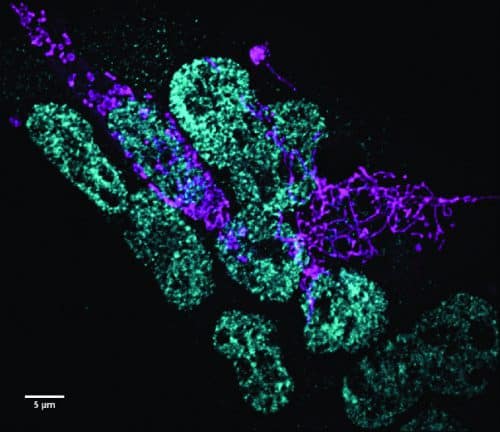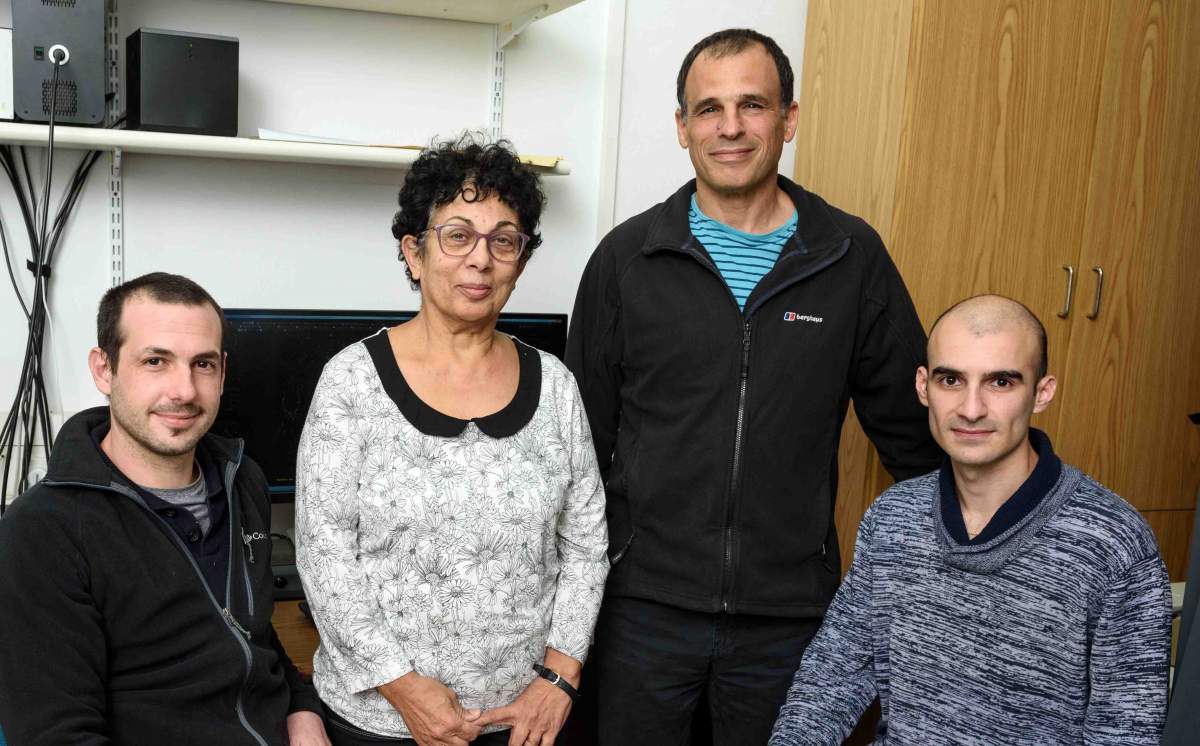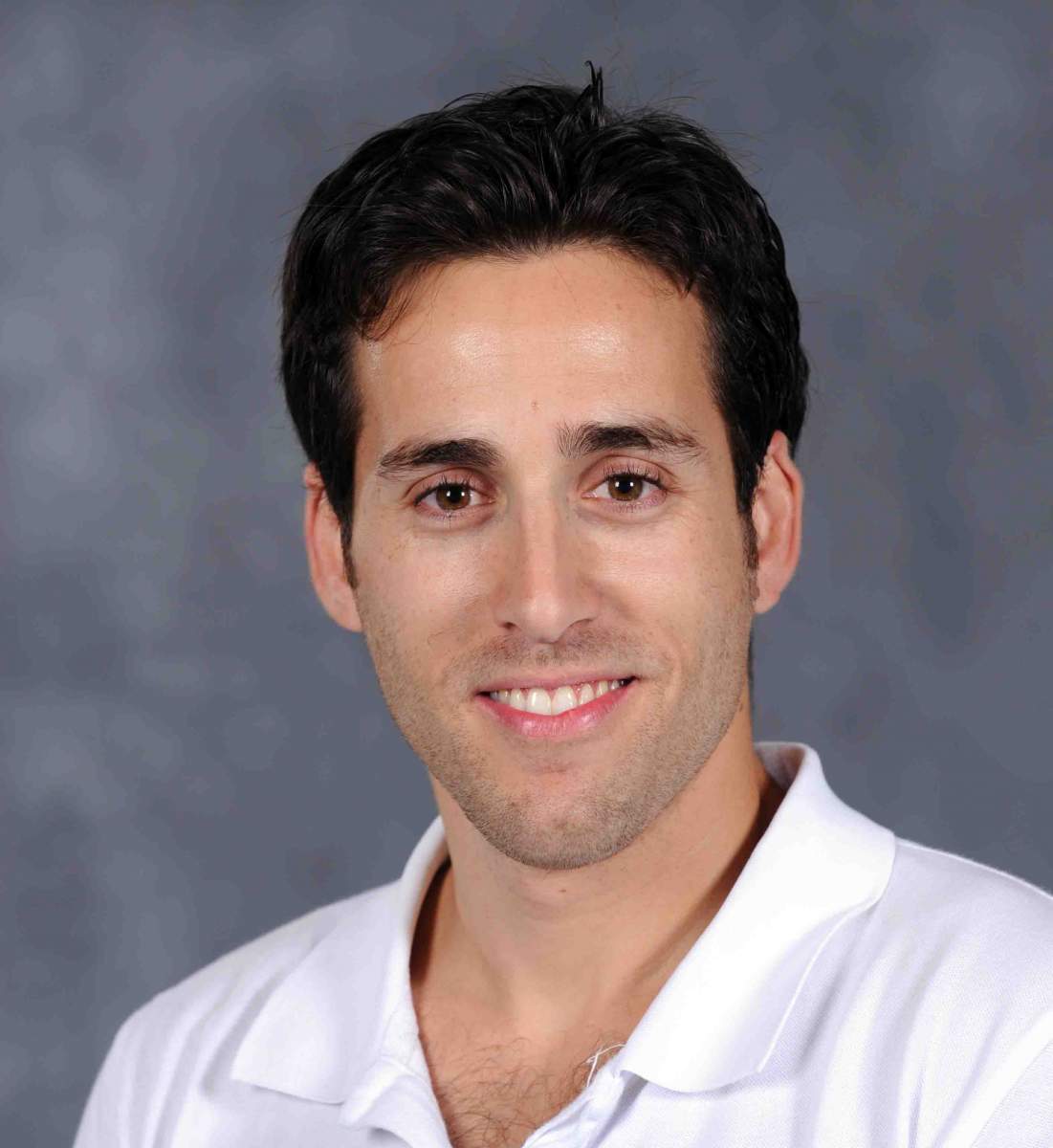In recent years, it has been discovered that mitochondria also greatly influence cellular processes. "Mitochondria undoubtedly function as one of the most important control centers in the cell," says Prof. Eitan Gross from the Department of Biological Control

Research in embryonic stem cells is one of the great promises of the medicine of the future. Questions, such as what is the mechanism that causes these cells to differentiate into the different body tissues, and how it is possible to engineer mature cells so that they turn back into stem cells, occupy laboratories around the world. Weizmann Institute of Science scientists recently discovered a new control mechanism on stem cell differentiation. asreport in the scientific journal Nature Communications., the scientists showed that the fate of embryonic stem cells may be decided by questions of "interior design" of the mitochondria - the "power plants" of the cell.
Each cell contains hundreds of mitochondria - tiny intracellular organelles protected by a membrane and containing their own genome, which is different from the DNA in the cell nucleus. In the past, it was common to think that the DNA and proteins in the nucleus control everything in the cell, but in recent years it has been discovered that the mitochondria also greatly influence cellular processes. "Mitochondria undoubtedly function as one of the most important control centers in the cell," says Prof. Eitan Gross from the Department of Biological Control. "They constantly change their shape - shrinking, expanding, merging with each other, lengthening or splitting - similar to houses whose walls are built to create new spaces or destroyed in favor of creating a larger space. Scientists have long believed that these dynamic changes may play a regulatory role in the cell, but it was not known what role exactly."

In the new study, research students Amir Bhatt and Anders Goldman and other members of Prof. Gross' group set out to investigate the role of these organelles in the early life of embryonic stem cells. They focused on a molecular switch in the mitochondrial membrane - MTCH2, known as "Mitch", which Prof. Gross discovered more than a decade ago. Mitch is so essential to the development of the embryo that mouse embryos in which it is missing do not survive more than a week. in collaboration with Prof. Yaakov Hana from the department of molecular genetics and with dr Ayelet ErezThe scientists from the Department of Biological Control set out to find out what roles Mitch plays in mouse embryonic stem cells during the first week of their formation.
The scientists found that in embryonic stem cells with a normal copy of the Mitch gene, adjacent mitochondrial organelles fused at a high rate, forming elongated and larger organelles. In genetically modified cells, which lacked Mitch, the organelles did not fuse at the same rate. This structural difference had far-reaching consequences: in the mitochondria of normal cells, metabolism, gene expression and epigenetic marks (chemical tags that affect gene activity) were no longer characteristic of embryonic stem cells, but of cells about to differentiate into different body tissues. In contrast, the transgenic cells - in which the mitochondria did not lengthen and did not change their metabolism - remained in the state of embryonic stem cells.

To make sure that the fate of the cell is indeed determined by the elongation of the mitochondria and not as a result of another Mitch action, the scientists caused the mitochondria to elongate using a "Mitch bypass" mechanism. The result was amazing: it was enough to cause the mitochondria to elongate, so that this would lead to the differentiation of the embryonic stem cells. "It was known that mitochondria lengthen under conditions of metabolic stress in order to make optimal use of nutrients in the cell and keep the cell alive, but now we have shown that this structural change may have a decisive effect on the fate of the cell," says Prof. Gross.
In biomedical research, many efforts are invested to restore mature cells to the state of "stem cells" - which can be used in various medical treatments. So far, most efforts have focused on genes whose engineering can allow cells to "go back in time". The current study opens a new research direction, centered on the change in the size and shape of the mitochondria. In addition, the new findings may advance the understanding of fertility problems. Embryonic stem cells begin to differentiate more or less at the same time as the embryo is received in the womb. Thus, a better understanding of the role of mitochondria in controlling the differentiation process may help to overcome problems in embryo uptake.
Dr. Judith Salzman, Coral Halperin, Emmanuel Amzlag, Michael Molokandov and Dr. Alon Zilberman from the institute's biological control department participated in the study; Dr. Dilshad Khan and Prof. Arun Shimer from the Princess Margaret Cancer Center in Toronto, Canada; and Dr. Vladislav Krupelnik from the department of molecular genetics of the institute.
